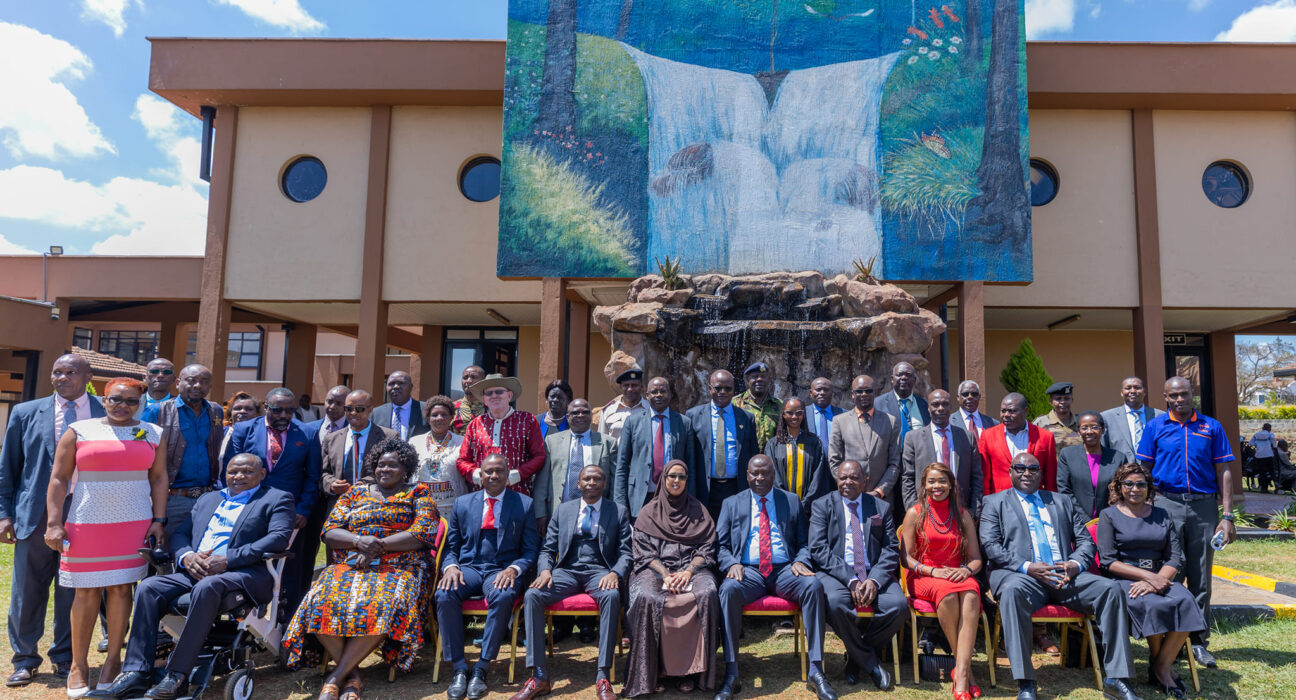The Kenya Institute of Special Education (KISE) is renowned for offering specialized training programs aimed at improving the quality of education for students with disabilities. One of the most popular programs offered by the institution is the Certificate in Kenyan Sign Language. This program is designed for individuals who want to acquire skills to communicate effectively with the Deaf community in Kenya, enhancing social inclusion and promoting accessibility in various sectors like education, healthcare, and government services.
As more people realize the importance of inclusive communication, the demand for certified Kenyan Sign Language interpreters and professionals is on the rise. Understanding the fee structure is crucial for students planning to enroll in the program. This article provides a detailed overview of the KISE Certificate in Kenyan Sign Language Fee Structure for the 2024/2025 intake.
Overview of the Certificate in Kenyan Sign Language Program
The Certificate in Kenyan Sign Language is designed to equip students with the knowledge and skills necessary to communicate using Kenyan Sign Language. This course is highly relevant for educators, healthcare providers, social workers, and anyone passionate about improving the lives of Deaf individuals. The program is available in two learning formats: Full-Time Study and Distance Learning, making it accessible to both full-time students and working professionals.
The duration of the program is three months, during which students learn about the basic grammar, structure, and vocabulary of Kenyan Sign Language. Upon successful completion of the program, students are awarded a Certificate in Kenyan Sign Language.
KISE Certificate in Kenyan Sign Language Fee Breakdown for 2024/2025
The fee structure for the Certificate in Kenyan Sign Language is designed to accommodate the financial capacity of most students. It includes various costs such as registration, tuition, and administrative fees. Below is the breakdown of the fees for each of the three sessions of the program:
1. Registration Fee
- Amount: Ksh 5,000 (Non-Refundable)
The registration fee is mandatory for all students and must be paid at the time of admission. This fee covers the administrative costs associated with the application process and securing a spot in the program.
2. Tuition Fees
- First Session: Ksh 18,600
- Second Session: Ksh 16,950
- Third Session: Ksh 16,950
- Total Tuition Fees: Ksh 52,500
The tuition fees represent the primary cost of the course. The first session incurs a higher tuition fee due to the foundational nature of the material covered. For the second and third sessions, the fees are slightly lower, reflecting the progression of the course. These fees cover academic instruction, learning materials, and the teaching resources necessary for the program.
3. Administrative Fees
- Amount per Session: Ksh 3,000
- Total Administrative Fees: Ksh 9,000
The administrative fee is charged per session and covers the operational costs of running the program. These costs include student support services, exam-related costs, and the maintenance of the infrastructure needed to deliver the program effectively.
Total Cost for the Entire Course
The total cost for the Certificate in Kenyan Sign Language program for the entire three-month duration is as follows:
- Registration Fee: Ksh 5,000
- Tuition Fees (for all three sessions): Ksh 52,500
- Administrative Fees (for all three sessions): Ksh 9,000
Total Fees for the Full Course: Ksh 66,500
It is important to note that the fees listed above do not include additional costs such as medical insurance, accommodation, meals, or optional student activities. Students will need to budget for these expenses separately.
Payment Options and Flexibility
KISE offers flexible payment options to ensure that students can meet their financial obligations without undue stress. Payments are made in installments, with each session requiring a separate payment. The payment structure is as follows:
Payment Breakdown:
- First Session Payment: Ksh 26,600 (Registration Fee + Tuition Fee for the first session + Administrative Fee)
- Second Session Payment: Ksh 19,950 (Tuition Fee for the second session + Administrative Fee)
- Third Session Payment: Ksh 19,950 (Tuition Fee for the third session + Administrative Fee)
Total Payment for the Entire Program: Ksh 66,500
Available Payment Methods:
- Bank Deposit: Students can make payments at any branch of National Bank of Kenya using the account number provided by KISE.
- M-Pesa Payments: For convenience, payments can also be made via M-Pesa, Kenya’s popular mobile money service.
- Bank Transfer: Students can also opt for bank transfers directly to the designated KISE account.
Proof of payment must be kept as it will be required for verification during registration and other administrative processes.
Additional Costs to Consider
While the main course fees are outlined above, students should also be aware of the following potential additional costs:
- Medical Insurance: Medical insurance is not provided as part of the course fees. Students are encouraged to arrange for their own medical coverage during the duration of the program.
- Accommodation and Meals: For students attending on a full-time basis, accommodation and meals are not included in the program fees. Students must make their own arrangements for housing, either within the KISE campus or in nearby private accommodation.
- Learning Materials: While KISE provides the essential learning materials, students may need to purchase additional books or resources to enhance their studies.
- Field Visits and Activities: Some sessions may involve field visits or internships, which could incur additional costs for transport, accommodation, and meals.
Scholarships and Financial Aid Options
KISE recognizes that financial constraints can be a barrier for some students, which is why the institution provides scholarships and financial aid options for eligible candidates. Interested students should inquire about available financial assistance during the application process.
The Importance of Learning Kenyan Sign Language
Kenyan Sign Language (KSL) is an essential tool for promoting inclusivity in Kenya, particularly for the Deaf and Hard of Hearing communities. As an official language recognized by the Kenyan government, KSL plays a crucial role in ensuring that Deaf individuals have access to education, healthcare, and public services without communication barriers.
By enrolling in the Certificate in Kenyan Sign Language program at KISE, students are not only enhancing their own career prospects but also contributing to creating a more inclusive society. The demand for trained Sign Language interpreters is growing, and completing this program opens up diverse opportunities in various sectors, including education, healthcare, social services, and even the media.
The Certificate in Kenyan Sign Language offered by KISE is an excellent opportunity for anyone seeking to make a positive impact in the lives of the Deaf and Hard of Hearing communities. With a total fee of Ksh 66,500, this program provides excellent value for the skills and knowledge it imparts. The flexible payment plan makes it accessible for a wide range of students, and the various learning formats ensure that everyone can benefit from this crucial training.
By enrolling in this course, students take a significant step towards enhancing communication and promoting inclusivity in Kenya. As the demand for Kenyan Sign Language professionals continues to grow, those who complete the course will find themselves well-positioned for rewarding careers in education, healthcare, social services, and beyond.





